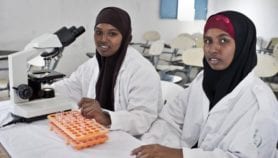Send to a friend
The details you provide on this page will not be used to send unsolicited email, and will not be sold to a 3rd party. See privacy policy.
Central to China’s long-term scientific ambitions is the work of the Chinese Academy of Sciences (CAS) and the dozens of research institutes it encompasses (see China unveils plans for science-based development).
In this article in Science, Richard Suttmeier and colleagues describe how CAS has been changing to meet the challenges ahead.
Since 1998, CAS has streamlined its infrastructure, phasing out unproductive research centres, recruiting more young scientists, initiating new ways of rewarding merit, and giving its institutes more control over how they manage research.
But the institute’s policies have had mixed results, say Suttmeier and colleagues. The new evaluation systems, for instance, put a lot of pressure on researchers to be more productive, and could force them to seek work elsewhere.
They also point out that it is rare for a body such as CAS to have so many distinct roles — from advising the government to training scientists, from funding and doing research to overseeing 400 companies — and that this could prevent CAS from keeping focused.
Another challenge, they say, is for the academy to work more closely with the private sector and with other government institutions at the local and national level.
Link to full article in ScienceMore on Networks

Script media release
Journalists offered ‘big break’ mentoring opportunity from Radio Nigeria
03/04/19












